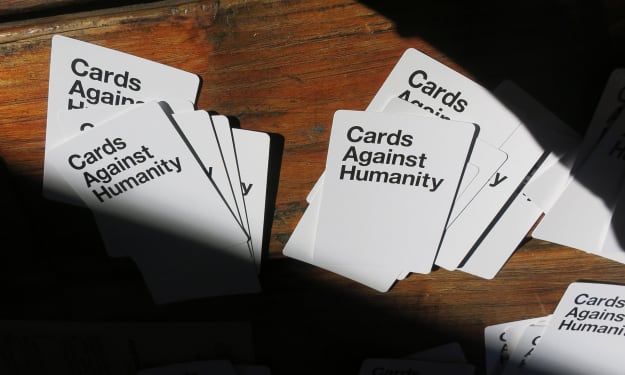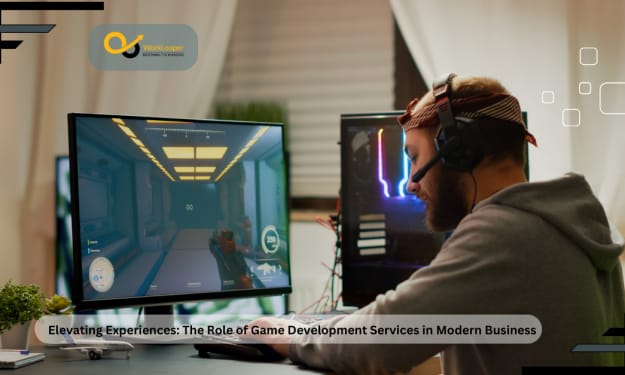Girl Gamers: Why Women Are Ignored By Gaming Companies, And Why It Has To Stop
Around 50 percent of all gamers are girls. Why is there such hate towards girl gamers?

If there's one gaming group that seems to get crazy amounts of hate, it's girl gamers. Realistically, most of the people who play video games don't really hate female gamers - but those who do seem to think girl gamers are the spawn of Satan. Their crime? It's simple: they played video games while female.
Being a female gamer - or even a female nerd - is a risk. Many women who choose to play video games on Twitch or even proudly proclaim that they are "girl gamers" quickly find this out the hard way when they start to receive online harassment from men and boys they don't even know.
It only takes one single look at Gamergate, online forums, and news headlines to see the kind of misogyny that girl gamers have to face. They're told to get naked or leave, they're told to kill themselves, and most of all, they're told to shut up.
The worst part is that the hate doesn't seem to be just directed at a handful of YouTubers, or be just something that a small section of gamers are doing. Even the gaming industry seems to have turned a cold shoulder to half their players.
Ever wonder why? The fact is that the rampant hate for girl gamers in the video gaming industry is systemic - and for many reasons.
Many Hate the New Face of Gaming

Historically speaking, gaming was one of those things that had an exact, very specific demographic associated with it. It was a white, male, socially awkward, science major industry. Among "nerdy" guys who had no home in sports, it was home. It was the one place they belonged.
In a world where women didn't pay attention to them, football jocks beat them up, and everyone just made fun of them, male gamers had games. Games were fun, and they allowed them to be heroes in their own stories.
Unfortunately for them, other groups started to catch on. Women started to play them and - shocker - enjoyed them. In some cases, girl gamers even began to design their own games or beat guys at games.
The face of gaming began to change.
No longer were gamers all just nerdy guys who had no social skills. Popular people began to play them, too. Girls began to show up at Call of Duty tournaments. Worse still, the very people who made them feel like crap at school and throughout life were beginning to best them.
The new face of gaming, whether they wanted to admit it or not, was an all-inclusive one. And, many male gamers who sought refuge began to feel threatened. Some straight up felt they no longer belonged or could even compete with the new wave of gamers.
A Crisis of Identity

Part of the reason why playing games became such a big business in the first place is that they offered an identity to people who would otherwise just be known as outcasts and freaks. This created an incredibly loyal customer base with a very strong, supportive community for those who "fit in."
As a result, the problem that girl gamers face is one that is hard to understand. For most male gamers, gaming is their identity. While girl gamers may just identify as such by name, it's not usually who they are.
This is doubly true when you think about what the old face of gaming used to be like. Most girl gamers have decent social lives, boyfriends, and typically don't look bad, either. Geek chic made a point of that.
For many male gamers, it's a different story - and it still is. The whole "geek chic" movement meant that they slowly started to become alienated from the very industry they made large.
One man who decided to talk about the identity issue explained it as such:
"The whole world of normal socialization was a club to which I couldn’t belong, but these communities - and later punk rock - offered me places where I could be among people who thought like me and often looked like me. They were safe places for me, and as the tide of geek chic rose I was horrified to see that the kind of people who had abused me for my fringe-interest identifiers were now co-opting them."
In a word, the subculture of gaming "sold out" to become mainstream - and gamers aren't happy about this. As a result, they view jocks and others, especially women, as an enemy on their turf.
With the fear that their "home" may get overtaken with people who they associate with hurt, pain and loss, gamers began to get hostile. This is where all the rape threats, death threats, and doxing began, and still continues to this day.
But, What About Companies?

The problem with most gaming companies is that they are well-aware of how gaming has changed. It's really not a "guys club" anymore, but at the same time, their male gamers tend to be the ones which spend the most money, get the most obsessive, and also get the most hype.
To a point, that core of hardcore male gamers explains why most gamer crews are overwhelmingly male. (The other part of that cause is that studies have shown that constant harassment makes women lose interest in gaming, unsurprisingly.)
In other words, male gamers are still the companies' primary bread-and-butter. So, from a business sense, they don't want to step on guys' toes despite the fact that they are ruining gaming for other people.
It's a top level Catch-22 that simply has no easy solution. Do you allow men and women game rule responses based on gender to keep your core audience, or do you take a major fiscal risk and isolate the original players of your game?
Either way, businesses would have losses. Even so, there's only so much most gaming companies can do to protect players from one another. So, turning a blind eye to players' complaints is a safer option.
As a result, gaming companies often will turn a blind eye to gamer girls' complaints when male gamers violate platforms' terms of service because of harassment. It's why girl gamers often have to resort to police intervention, "unplugging" or even just quitting gaming. No one will stand up for them.
Additionally, girl-centric games just don't sell well. Most girls who do game enjoy the more "masculine" games like Halo and Assassin's Creed. The reason why is simple - because they're fun.
This has to stop for a pretty obvious reason: it's wrong, and does nothing but harm for the gaming industry as a whole.
It's In the Money
If you want to know why gaming companies continue to ignore girl gamers, it's because they're worried about the financial repercussions of not doing so. It's a money issue, plain and simple, and if things are to change, companies are going to have to see that girls can be profitable too.
About the Creator
Patricia Sarkar
Raised on a steady diet of makeup and games. Eager to share my experiences with the world and make a difference, article by article! :)






Comments
There are no comments for this story
Be the first to respond and start the conversation.